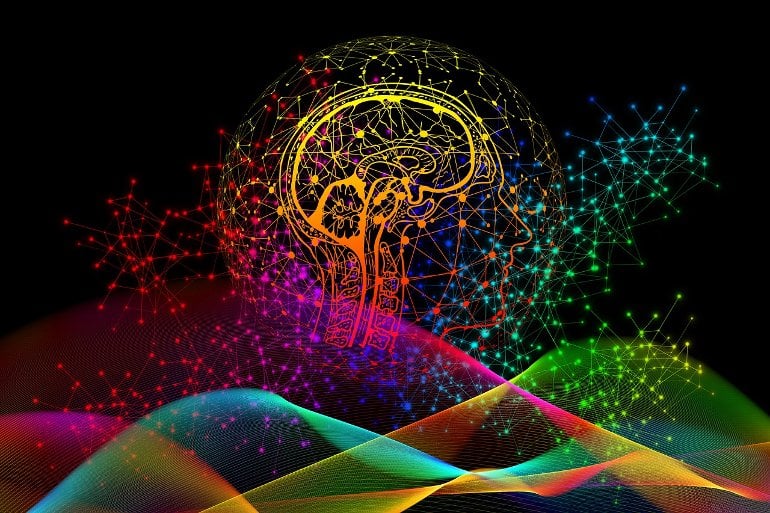Summary: In order to better understand the role that knowledge serves in human intelligence, it is essential to look beyond the individual and focus studies on the community overall, researchers say.
Source: University of Illinois
In a new paper, scientists suggest that efforts to understand human cognition should expand beyond the study of individual brains. They call on neuroscientists to incorporate evidence from social science disciplines to better understand how people think.
“Accumulating evidence indicates that memory, reasoning, decision-making and other higher-level functions take place across people,” the researchers wrote in a review in the journal Frontiers in Systems Neuroscience. “Cognition extends into the physical world and the brains of others.”
The co-authors – neuroscientist Aron Barbey, a professor of psychology at the University of Illinois Urbana-Champaign; Richard Patterson, a professor emeritus of philosophy at Emory University; and Steven Sloman, a professor of cognitive, linguistic and psychological sciences at Brown University – wanted to address the limitations of studying brains in isolation, out of the context in which they operate and stripped of the resources they rely on for optimal function.
“In cognitive neuroscience, the standard approach is essentially to assume that knowledge is represented in the individual brain and transferred between individuals,” Barbey said. “But there are, we think, important cases where those assumptions begin to break down.”
Take, for instance, the fact that people often “outsource” the task of understanding or coming to conclusions about complex subject matter, using other people’s expertise to guide their own decision-making.
“Most people will agree that smoking contributes to the incidence of lung cancer – without necessarily understanding precisely how that occurs,” Barbey said. “And when doctors diagnose and treat disease, they don’t transfer all of their knowledge to their patients. Instead, patients rely on doctors to help them decide the best course of action.
“Without relying on experts in our community, our beliefs would become untethered from the social conventions and scientific evidence that are necessary to support them,” he said. “It would become unclear, for example, whether ‘smoking causes lung cancer,’ bringing into question the truth of our beliefs, the motivation for our actions.”
To understand the role that knowledge serves in human intelligence, the researchers wrote that it is necessary to look beyond the individual and to study the community.
“Cognition is, to a large extent, a group activity, not an individual one,” Sloman said. “People depend on others for their reasoning, judgment and decision-making. Cognitive neuroscience is not able to shed light on this aspect of cognitive processing.”
The limitations of individual knowledge and human dependence on others for understanding are the themes of “The Knowledge Illusion: Why We Never Think Alone,” a book Sloman wrote with Phil Fernbach, a cognitive scientist and professor of marketing at the University of Colorado.
“The challenge for cognitive neuroscience becomes how to capture knowledge that does not reside in the individual brain but is outsourced to the community,” Barbey said.
Neuroscientific methods such as functional MRI were designed to track activity in one brain at a time and have limited capacity for capturing the dynamics that occur when individuals interact in large communities, he said.
Some neuroscientists are trying to overcome this limitation. In a recent study, researchers placed two people face-to-face in a scanner and tracked their brain activity and eye movements while they interacted. Other teams use a technique called “hyperscanning,” which allows the simultaneous recording of brain activity in people who are physically distant from each another but interacting online.

Such efforts have found evidence suggesting that the same brain regions are activated in people who are effectively communicating with one another or cooperating on a task, Barbey said. These studies are also showing how brains operate differently from one another, depending on the type of interaction and the context.
Several fields of research are ahead of neuroscience in understanding and embracing the collective, collaborative nature of knowledge, Patterson said. For example, “social epistemology” recognizes that knowledge is a social phenomenon that depends on community norms, a shared language and a reliable method for testing the trustworthiness of potential sources.
“Philosophers studying natural language also illustrate how knowledge relies on the community,” Patterson said. “For example, according to ‘externalism,’ the meaning of words depends on how they are used and represented within a social context. Thus, the meaning of the word and its correct use depends on collected knowledge that extends beyond the individual.”
To address these shortfalls, neuroscientists can look to other social science fields, Barbey said.
“We need to incorporate not only neuroscience evidence, but also evidence from social psychology, social anthropology and other disciplines that are better positioned to study the community of knowledge,” he said.
About this neuroscience research news
Author: Diana Yates
Source: University of Illinois
Contact: Diana Yates – University of Illinois
Image: The image is in the public domain
Original Research: Open access.
“Cognitive Neuroscience Meets the Community of Knowledge” by Aron Barbey et al. Frontiers in Systems Neuroscience
Abstract
Cognitive Neuroscience Meets the Community of Knowledge
Cognitive neuroscience seeks to discover the biological foundations of the human mind. One goal is to explain how mental operations are generated by the information processing architecture of the human brain.
Our aim is to assess whether this is a well-defined objective. Our contention will be that it is not because the information processing of any given individual is not contained entirely within that individual’s brain. Rather, it typically includes components situated in the heads of others, in addition to being distributed across parts of the individual’s body and physical environment.
Our focus here will be on cognition distributed across individuals, or on what we call the “community of knowledge,” the challenge that poses for reduction of cognition to neurobiology and the contribution of cognitive neuroscience to the study of communal processes.







